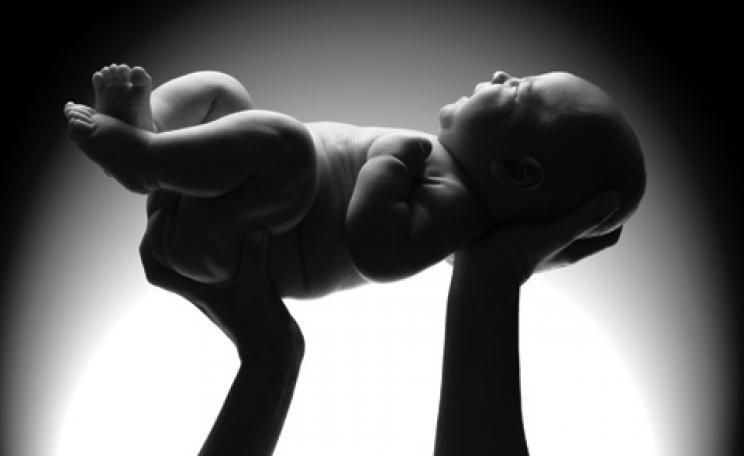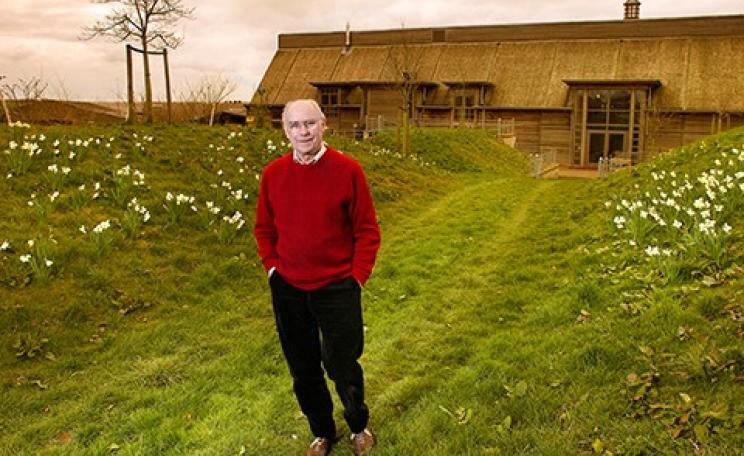Laura Sevier: How can we reconcile our needs for certain things - computers, fridges and so on - with its impact?
Annie Leonard: I'm not against stuff. I actually want us to like our stuff more. In some ways I am pro stuff! I want us to have more reverence and appreciation of the stuff that we have so that we're not just chucking it. I want our stuff to be safe, to last. I'm against stuff that trashes the planet and poisons people and with which we confuse our sense of self worth.
Computers are great for access to art, news and communication. But do they have to have neurotoxins in them? Do they have to destroy wildlife and communities in the Congo and do they have to only last a couple of years and be impossible to upgrade and recycle so that they get shipped to China and poison people there?
The problem with stuff is three things: that we have too much stuff, that we use too toxic stuff and we don't share it well. I am absolutely convinced (and I've spent a lot of time reading about a lot of technological developments) that there's no real obstacle to us having computers that last and that are toxics free and that are more equitably shared.
LS: Advertising has a huge influence on what we buy and what we want. How can we tackle this?
AL: It's not that we're dumb and we'll believe anything we'll see. It's the relentlessness of the messages. If someone tells you something thousands of times a day eventually it will sink in.
One of the things I would love to see is restrictions on advertising, especially to kids. In the US it's relentless. It's outrageous to just indoctrinate them when they're so young, especially as they can't be expected to have the critical thinking to know that 'this is a company and they're trying to get my money'. We should definitely ban marketing to children and restrict marketing beyond that.
Another thing is, we should have more honest marketing. When I was a kid commercials used to talk more about the actual product. Nowadays there are so many products that what they do is associate a product with a lifestyle instead of talking about what's in the product.
LS: You've travelled to about 40 countries visiting factories where stuff is made and dumped. What is the most shocking thing you've seen?
AL: I've seen toxic mercury waste dumped in black townships after apartheid so that people couldn't leave, and workers working with no protective gear whatsoever in hazardous waste factories in China and India. I've seen every kind of environmental and human rights abuse.
But what's most shocking is how unnecessary it is, and how much easier it would be to do it better. We could make our stuff safe, we could make it to use way less toxics, we could make it to not poison the workers. There's so many technological innovations that we're just not using. I don't think technology is the only solution and those who only talk about technology are missing a huge piece around social equity and justice. But it is a piece of the solution for sure.
LS: You had a body burden test described in the book - how do you feel now knowing what chemicals are in you?
I knew generally what was in me because it's in everybody. I am loaded with toxic chemicals. Yet I am so vigilant. My house has no PVC, no BFR's [brominated flame retardants]. I only eat organic food - I do everything I can do avoid them.
There were a couple of surprises, and one is I had really high levels of mercury. I stopped eating tuna. I did have a whole class of chemicals that was lower than average. I asked the scientist, and he thinks it was because I didn't eat meat for years.
I used to feel angry about it but to me it just shows how you can't solve this stuff on an individual level. These chemicals are so prevalent, they are everywhere. We know this stuff is causing problems with animals but we somehow think it won't cause problems for us.
LS: What are the biggest obstacles to phasing toxic chemicals out of industrial processes?
One of the biggest things we need to do is get human health on the radars of schools and companies that do chemical synthesising and private development. There are some green chemists starting to do this and it's exciting to see what they're coming up with. There's also biomimicry - that stuff is so cool.
If you have a hazardous substance, there's two ways that you can work on reducing the risk (hazard multiplied by exposure = risk). You can try to limit exposure or you can limit the hazard and get rid of the hazard. What we've seen is that we can't contain these chemicals.
The main obstacle right now is the corporate dominance of the political system. The government could say 'take this out'. You guys have done so much better than the US. For instance you have the EU Cosmetics Directive which has banned over a thousand toxic chemicals from personal care products - we're still allowed to use those chemicals. If we had a true democracy nobody would vote for products that are riddled with these chemicals. But it's just really hard to get any environmental or health protective law through the government these days.
LS: How can we go from a throwaway culture to a zero waste culture which values non toxic products that last?
AL: This is the exciting part - there are so many ways to do it! One of the ways - the top priority - is human health. So chemicals that cause human health impacts are not allowed - period. This is a huge values shift - saying that human and environmental health and wellbeing are the goal and the economy should be feeding into that goal.
Another thing is, right now the only metric we use to measure success is GDP. It's crazy - we should be measuring human health and literacy and the quality of water and air. We need a different metric system of what's success. Now, the BP oil spill has increased GDP so it's considered a plus!
Another thing I'd love to see more of is extended producer responsibility, which they're now starting to have in Europe, where companies are responsible for their end of life products. So if they're stupid enough to put four pounds of lead in our computer model it goes right back to them so they'll have some real motivation.
LS: Can personal changes really make a difference when what's needed are these big sweeping policy changes?
AL: I'm a big critic of these lists of 'ten simple things you can do' for a couple of reasons. For one, they're not creating political change. Of course you should recycle, ride a bike and so on. But those things aren't political action. They are responsible house management - they're part of being a functional adult. The danger comes when people think that because they recycle they're making change. The decisions being made by industry dwarfs the compilation of all those individual actions - it's not the place we should put all our energy. Even though we should do those things.
LS: How can we counter environmental racism?
AL: Sometimes we talk about how hazardous waste follows the path of least resistance, that it will seek out communities that are perceived to lack the political, educational or financial resources to stop it. In the US that means that our incinerators and garbage ends up near poor communities of colour who are often overseas.
The solution is first at the design stage: making products safe and making them last, more upgradable, more repairable. At the disposal end it's to dispose of them in a safe, healthy place - don't dump our waste onto other people. Extended Producer Responsibility (EPR) is a great tool for this.
LS: What do you make of incinerators that call themselves 'energy from waste' plants and that claim to use more efficient techniques such as gasification?
AL: I am totally against all incineration. There are a couple of issues with this. It's true that modern incinerators are more efficient than previous ones but if you look at the Global Anti Incineration Alliance (GAIA) website you'll see a critique of gasification.
Incineration can never be green partly because of the emissions, partly because it's diverting an incredible amount of money into burning resources when you could be putting it into zero waste alternatives.
It's the most unimaginative thing political leaders can do because they don't have to think about anything different. They don't have to push manufacturers to make things cleaner and greener. They just build a giant machine and put stuff in it. Who pays is all of us with our health and environmental sustainability. They're terrible.
---
Watch The Story of Stuff 20 minute animation narrated by Annie Leonard here
The Story of Stuff by Annie Leonard (£8.99, Constable) is out now
Laura Sevier is the Ecologist's Green Living Editor
| READ MORE... | |
 |
HOW TO MAKE A DIFFERENCE 10 groups campaigning against waste Viewed in new light, waste is a resource – to be used again, recycled or resurrected for another use |
 |
INVESTIGATION How we poison Bangladesh with toxic ship carcasses Workers are dying in Bangladesh’s shipyards because the west's shipping industry - including UK companies - is not taking responsibility for the disposal of ageing vessels |
 |
INVESTIGATION 'Just throw it out' - Council advice on toxic lightbulbs An Ecologist investigation reveals that three quarters of London Boroughs are advising their residents to simply throw compact fluorescent lightbulbs in their general waste, despite the hazard posed by their mercury content |
 |
INVESTIGATION The new green face of incineration technology Incineration is a dirty word amongst environmentalists, its reputation earned through the use of outdated technology. Could new techniques help bring green approval to energy-from-waste facilities? |
 |
HOW TO MAKE A DIFFERENCE Scrapstores: turning waste into arts and crafts The Watford Scrapstore is a treasure trove for children, teachers and eco-conscious artists on a budget. Here, scrap materials are transformed into community art |








